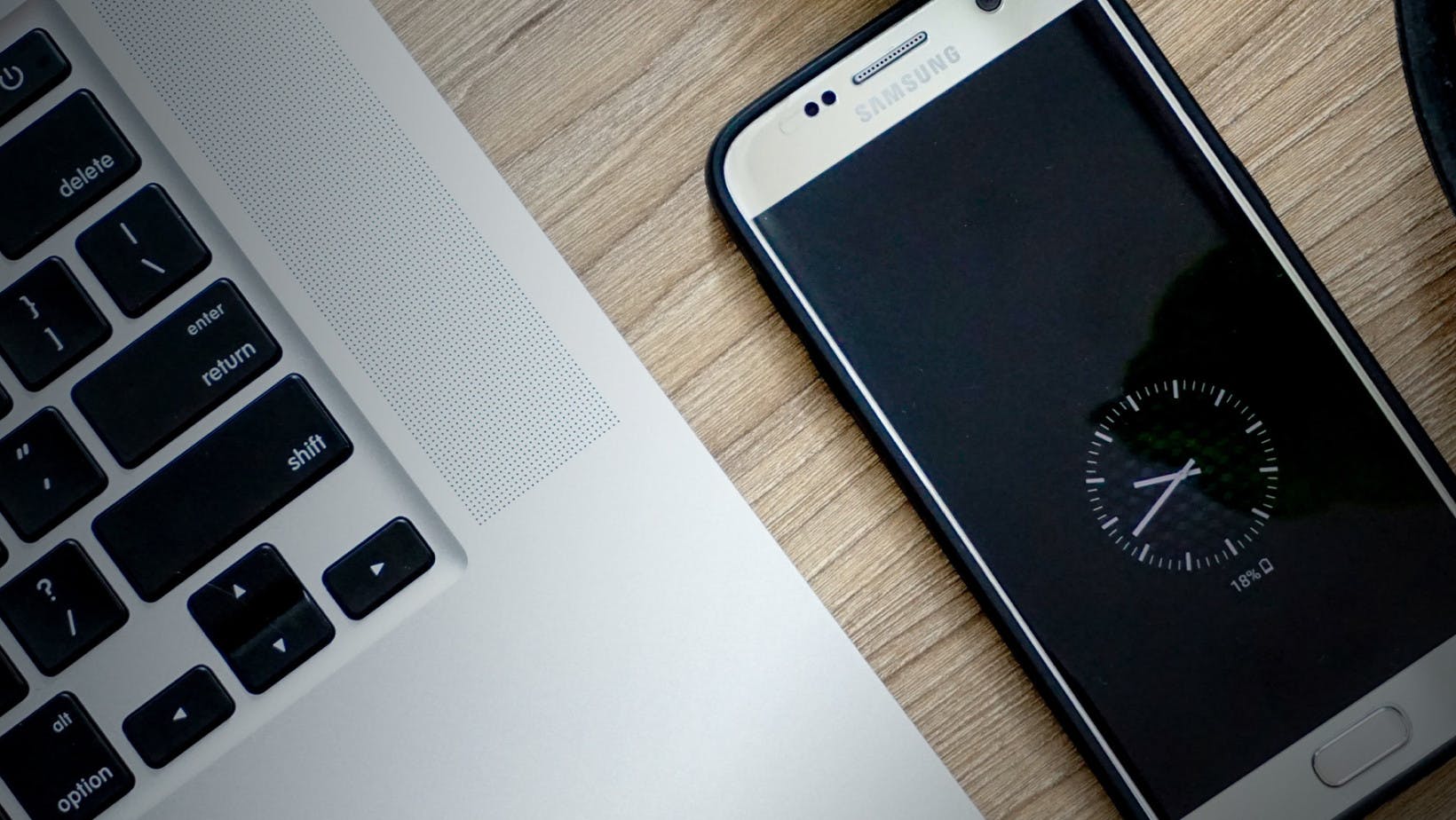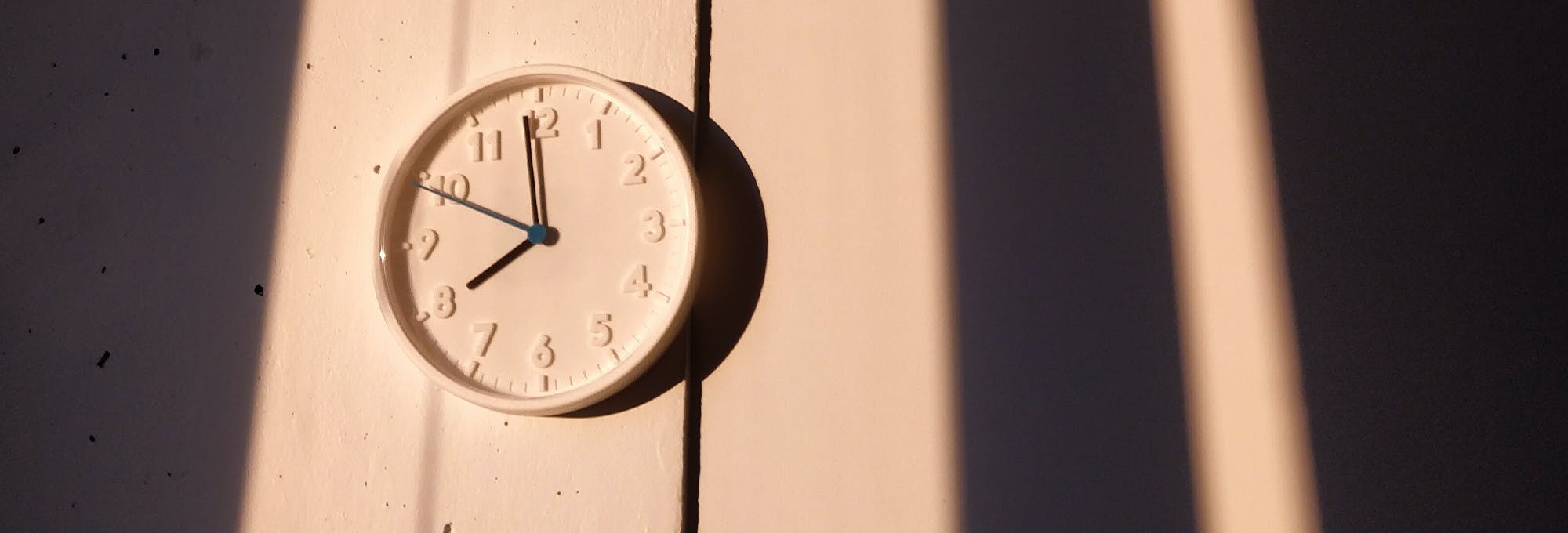
College Success
10 Best Time Management Tips for College Students | Outlier
Learn what time management means, tips on how to do it, and the benefits it can give you in your college journey.
Bob Patterson
Former Stanford Director of Admissions

College Success
05.02.2023 • 9 min read
Subject Matter Expert
Learn about procrastination, how it can affect your college career, and tips to overcome it.
Have you heard of student syndrome?
It’s when students plan procrastination and finish assignments at the last minute.
Does this apply to you at all? (It’s okay to admit it.)
Let’s go over why university students procrastinate, the effects of procrastination, and how you can overcome it.
Procrastination is delaying tasks or decisions either on purpose or on a regular basis. It typically results in stress, reduced efficiency, and potentially negative consequences when something needs to be accomplished within a short period. Procrastination can stem from various factors, such as fear of failure, lack of motivation, or poor time management skills.
To put something off on purpose? Over and over again?
Yikes!
According to one study, 80-95% of students say they procrastinate to some degree and 75% describe themselves as procrastinators.
College students procrastinate for many reasons. A big final exam. A project. It’s impossible to list them all. Here are a few causes of procrastination:
Procrastination has been shown to stem from the fear of disapproval, especially among college students. This disapproval may be from your professor, fellow peers, your parents, or even yourself. When you focus on needing to make an assignment perfect, you might struggle to get the process started and procrastinate as long as you can.
When you’re afraid of not being seen as perfect, you’re training your body to believe you have to be perfect. It’s a lot of pressure you’re putting on yourself. Over time, procrastination builds up and can cause depression, anxiety, and low self-esteem.
Messing up and failing happens. Not everyone likes to experience it though. It's one big reason people procrastinate. When you think about working on things, you might also think about everything that could go wrong.
Focusing on a negative outcome can bring on strong feelings of fear and dread. This causes you to avoid doing the work altogether.
Academic procrastination not only can affect your academic achievement, but it can also affect your physical health. It can trigger control activities around your physical health like your diet. It also can affect your mental health by triggering anxiety and depression.
When you aren’t motivated to do academic tasks, it can be difficult to get yourself going. You might not be motivated for a number of reasons. It could be perfectionism (see above). Or it could be task aversion: you don’t like what you have to do, so you avoid it.
It could also be something more serious like depression. If this is the case, you are more likely to experience this lack of motivation with most tasks, not just a select few.
Exhaustion can make it challenging to concentrate and complete tasks. Several factors contribute to exhaustion:
Prioritize getting enough rest to feel refreshed and energized. Gradual improvements in your sleep routine can lead to significant benefits.
Studying for 4-5 hours straight, particularly late at night, can make it hard to retain information. Incorporate breaks into your study sessions to avoid overtaxing your mind, especially if you're not accustomed to extended periods of concentration.
Not consuming enough healthy food and beverages can result in exhaustion. When your body is struggling to function on limited energy, cognitive performance suffers. Plus, a cycle of consuming unhealthy foods and experiencing sugar crashes contributes to exhaustion.
Prolonged stress can lead to both physical and mental exhaustion. Engage in relaxation techniques or seek professional help to manage and reduce stress levels.
A lack of physical activity can contribute to feelings of exhaustion. Incorporate regular exercise into your daily routine to boost energy levels and improve overall well-being.
Feeling overwhelmed is a common reason college students procrastinate. Juggling school, childcare, work, and other commitments often leads to decision fatigue. The numerous decisions made throughout the day, even seemingly small ones, can accumulate and deplete mental energy, making it difficult to focus on tasks at hand.
One effective strategy to combat this is establishing routines, reducing the need for decision-making. For instance, setting aside a specific 30-minute window after class to study Calculus in an empty room while enjoying an energy bar can be highly beneficial. This routine not only clarifies when and where to study but also addresses food and location choices, preventing hunger-induced exhaustion.
By creating routines, you allow your brain to concentrate on solving problems and directing energy toward what truly matters, ultimately enhancing focus and productivity.
Procrastination can lead to poor grades for students. Struggling to complete schoolwork often results in subpar performance or missed assignments. While the initial penalties might seem insignificant in the short term, they add up over time and lead to a lower overall academic performance or even affect entry into college. To avoid these negative consequences, it’s crucial to address procrastination early in the semester.
When college students procrastinate, they often struggle to complete assignments, leading to frustration. This frustration can reduce motivation and negatively affect relationships. Addressing frustration early is essential for academic success and maintaining healthy connections.
Procrastinating on various aspects of life, such as exercise and healthy meal planning, can impact a student's overall well-being. And it can have adverse effects on mental health, as students may develop a habit of focusing on worst case scenarios.
Stress and anxiety are commonly associated with procrastination. These emotions can arise not only from a fear of failure but also from submitting subpar work or confronting an intimidating to-do list. They can undermine self-confidence and manifest in physical symptoms. According to the Mayo Clinic, stress can cause headaches, upset stomach, muscle tension, and changes in sex drive.
The mental and physical consequences of procrastination lead to missed chances and more stress. Students may miss out on exciting events because they’re cramming for an exam at the last minute. Proactivity and effective time management help seize valuable opportunities.
Now that you understand procrastination and its detrimental effects, let's explore 3 essential strategies to curb it in your life:
Routines are crucial. They help mitigate fear of failure by providing small victories and setting your day on the right track.
For example, a routine might involve waking up, brushing and flossing your teeth, making your bed, and preparing a healthy breakfast—planned the night before. Within 30 minutes, you've already achieved four "wins."
Routines also alleviate decision fatigue. By selecting your outfit and meals ahead of time, you can streamline your morning routine. Scheduling these tasks in the late afternoon or evening allows for smoother mornings.
Consistent routines reduce fear of failure and decision fatigue, addressing 2 significant causes of procrastination.
Mel Robbins, a motivational speaker and author, believes that nobody is a procrastinator—they just have a “habit of procrastinating.” In order to break this habit, she believes you need to do a little bit of work when you feel like procrastinating, even if it’s just 5 minutes.
Taking small steps to tackle your work helps change your procrastination habit and makes progress toward your overall goals. This method of breaking tasks into smaller chunks is useful in both academic and social settings. For instance, spending 2 minutes cleaning your apartment can accumulate significant results over time.
When facing a daunting 25-page paper, divide it into 30-minute segments to make the task more manageable and less intimidating. Allowing yourself to work on smaller portions reduces the long-term stress of procrastination.
When you really stop and listen to your inner thoughts, it’s amazing how cruel we are to ourselves compared to how we talk to others. Cultivate conscious awareness of these thoughts and work on treating yourself more kindly.
Replace phrases like "I'm such an idiot" with "I know how I can do this better next time." Reinforcing positive self-talk bolsters your self-esteem and helps combat the perfectionism that can cause procrastination.
If you need some inspiration to finally overcome procrastination, let’s look at a blast from the past.
In 1830, Victor Hugo was the real deal when it came to putting things off. His famous book, The Hunchback of Notre-Dame, almost never happened.
He missed not one, but two deadlines. His publisher was so fed up they threatened him with a massive fine.
So, what did Victor do? He put himself under house arrest.
In fact, he locked away his clothes. And guess what? It worked! He finished the book, and it became a classic.
Now, hopefully you don’t need to use a tactic this dramatic (or maybe you do).
Just remember: motivation isn't enough.
No matter what technique you decide to use, with a little creativity, you too can accomplish what you need to do.
Outlier (winner of TIME Best Inventions 2020) and Golden Gate University (#1 school for working professionals) have redesigned the experience of earning a college degree to minimize cost and maximize outcomes. Explore a revolutionary way to earn your college degree:

College Success
Learn what time management means, tips on how to do it, and the benefits it can give you in your college journey.
Former Stanford Director of Admissions

College Success
Learn student success tips for college. Explore your potential, get study tips, and learn how to succeed in college as a first year student.
Author

College Success
Learn what a GPA is, why universities require it, how it’s calculated, and some top tips to increase and maintain a high GPA.
Subject Matter Expert